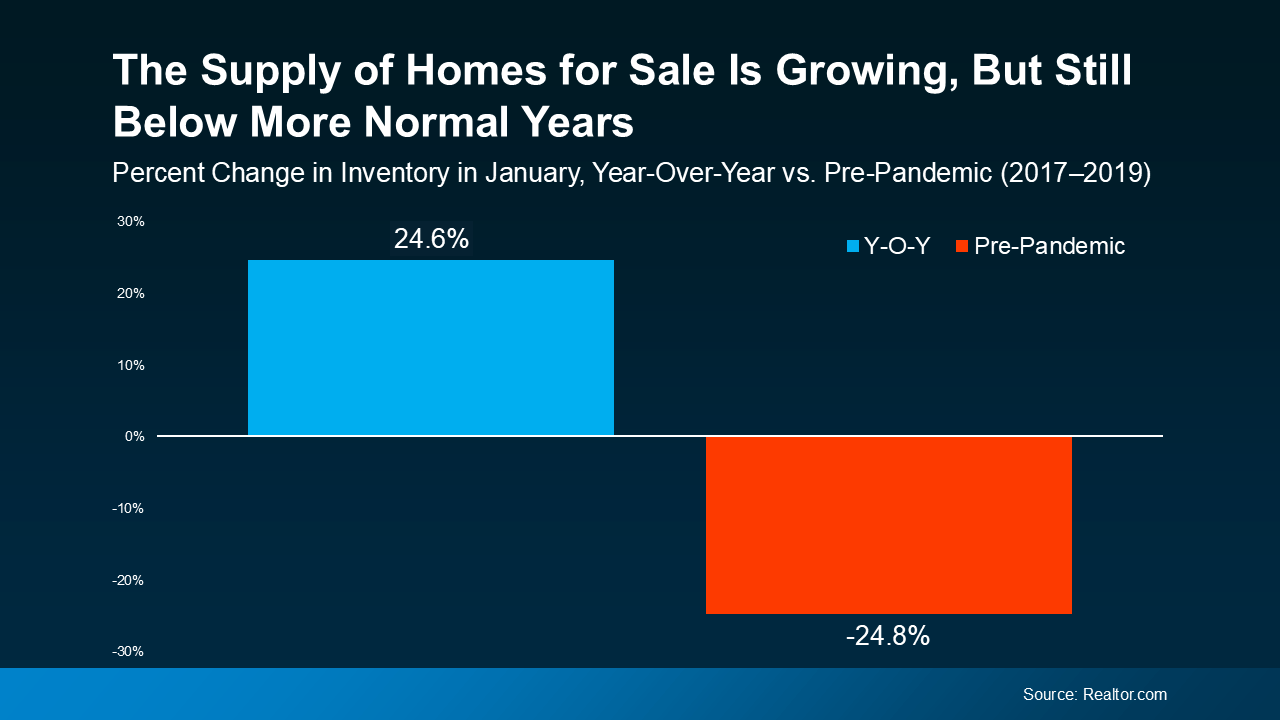Stronger Together: Local Real Estate Teams Unite Under CENTURY 21 Affiliated

NILES, Ml – [June 24, 2025] – A new chapter in Niles real estate begins as Integrity Real Estate Professionals officially join the CENTURY 21 Affiliated family. This exciting change follows Horizon Realty Group’s affiliation earlier this year.
As part of this transition, Brian Floor will be stepping away from his leadership role and resuming his position as a full-time Realtor®, continuing to serve clients with the same care and dedication he’s known for. Kyle Zelmer will lead the office moving forward as Managing Broker, bringing together the teams from Horizon Realty Group, Integrity Real Estate Professionals, and CENTURY 21 Affiliated.
“This change represents the best of what each team brings to the table,” said Kyle Zelmer. “We’re combining experience, strong community ties, and a shared commitment to putting our clients, agents, and community first. We’re all working together to ensure a smooth and seamless transition.”
Clients can expect continued excellence, familiar faces, and improved tools and resources to make their real estate experience even better. All three teams are committed to supporting one another and the broader Niles community as this new venture moves forward.
“I’m excited to return my full focus to serving clients,” said Brian Floor. “This new structure allows me to do what I love—helping people buy and sell homes—while knowing the leadership is in great hands with Kyle.”
About CENTURY 21 Affiliated
CENTURY 21 Affiliated is a member of multiple listings services in California, Illinois, Michigan, Minnesota, and Wisconsin, with over 1,400+ sales professionals and 60+ offices. CENTURY 21 Affiliated also specializes in worldwide relocation. At CENTURY 21 Affiliated, the customer comes first. The complete commitment to this philosophy has made CENTURY 21 Affiliated such a powerful force in the real estate industry. CENTURY 21 Affiliated has been ranked the No. 1 CENTURY 21® franchise worldwide for eleven years in a row. Visit C2Affiliated.com to learn more.
###
America’s Richest Self-Made Woman, Billionaire Diane Hendricks, and Daughter Konya Hendricks Schuh Take on Hometown Revitalization in New Daytime Docuseries

“BETTING ON BELOIT”
New Home Renovation and Design Series Premieres July 12 at 1 pm ET/PT on A&E, Part of the Network’s Lifestyle Daytime Programming Block
Trailer HERE
NOTE: Konya Hendricks Schuh and Connor Fox are licensed real estate agents with CENTURY 21 Affiliated.
LOS ANGELES – (June 11, 2025) – America’s richest self-made woman, Diane Hendricks (#1 on the Forbes “Richest Self-Made Women” list the last eight consecutive years) is betting big on the town integral to her family’s success. The series chronicles the billionaire entrepreneur and her driven, accomplished daughter Konya Hendricks Schuh’s mission to revitalize Beloit, Wisconsin – once ranked as the state’s “worst city to live in” by USA Today.
Premiering Saturday, July 12, with back-to-back episodes at 1pm and 1:30pm ET/PT on A&E, Betting on Beloit airs as part of the network’s lifestyle daytime programming block. Episodes will also be available the next day on A&E’s website and on-demand.
Rising from humble beginnings to owning the largest wholesale construction supplier in the nation, Diane settled in the area in the 1970s and became a titan of industry – and one of Beloit’s biggest employers – helping build up the region as an industrial epicenter where thousands flocked to achieve the American dream. While Diane’s headquarters remained local, the 1990s saw too many industrial employers move overseas, forcing many residents of Beloit to find opportunity elsewhere. Determined to restore Beloit to its former glory, Diane has spent the last several decades working to improve the city through major economic development efforts. In addition to building a new stadium and school, hotels and multiple restaurants, Diane revitalized the entire industrial riverfront, finding new uses for the once-abandoned factory buildings.
Now, Diane has tasked Konya, a sharp real estate broker with a passion for design and a deep connection to the city, with leading the next phase of the revitalization effort.
Betting on Beloit follows Konya and her dynamic team – which includes her husband Matt (a plumbing contractor and former home builder), good friend and project manager Pete, and her realtor nephew Connor, as well as local artisans and designer friends Kristin and Mitch – as they purchase, restore and reimagine historic homes throughout Beloit’s storied neighborhoods.
With her mother financing this ambitious venture, the stakes are high for Konya and her team as they try to achieve their collective mission: to turn once-neglected properties into vibrant dream homes for individuals and families ready to plant new roots in Beloit. With grit, heart and a whole lot of Midwest spirit, they’re not just flipping houses—they’re rebuilding their community, one home at a time.
Tune in to all 12 episodes to get an inside look at the vision, challenges and triumphs of a bold revitalization journey that proves the American dream is still alive – and rooted in places you might not expect.
Betting on Beloit is produced by Wheelhouse’s Butternut, with Courtney White, Konya Hendricks Schuh, Rachel Sobel, Russ Friedman, Will Nothacker, Frank Carlisi and Tim Grady serving as executive producers.
About A&E
A&E leads the cultural conversation through high-quality, original programming that captivates viewers and brings them to the heart of the stories that matter. Through its distinctive brand of award-winning non-fiction and documentary programming, A&E always makes entertainment an art. For more press information and photography, please visit press.aegm.com. A&E is a division of A+E Global Media (aegm.com), a joint venture of the Disney-ABC Television Group and Hearst Corporation.
About Butternut
Lifestyle production company Butternut is run by lauded producer and executive Courtney White, formerly president of Food Network and general manager of HGTV. A joint venture with Wheelhouse launched in 2022, Butternut creates original food, home and other lifestyle content for all platforms, working with a range of established, emerging and home-grown talent. The company’s current slate includes Next Baking Master: Paris (Food Network); Giada In My Kitchen (Prime Video); Cookie, Cupcake, Cake (Hulu/A&E); Last Bite Hotel (Food Network); Divided by Design (HGTV) and Celebrity Family Food Battle(Roku), executive produced and starring Sofia Vergara, plus other series on deck for launch later this year.
About Konya Hendricks Schuh
With more than two decades of experience in real estate development, sales and construction, Konya Hendricks Schuh brings a deep understanding of the industry and a long-standing commitment to community revitalization. The daughter of Diane Hendricks – co-founder of ABC Supply and one of America’s most influential business leaders – Konya has long been immersed in the business of building, transforming and investing in communities. Sharing in her parents’ devotion to Beloit, Konya has played a key role in numerous projects that have contributed to the city’s ongoing growth and renewal.
As a real estate broker, she specializes in residential and new construction properties, helping clients navigate the market with a designer’s eye and a developer’s mindset. For each project, Konya runs point on all decisions, big and small, and leads the design process with a focus on honoring each home’s history and style while elevating spaces with modern touches.
Konya serves as the secretary and treasurer of the Hendricks Family Foundation, where she helps guide philanthropic initiatives focused on education, workforce development and economic opportunity. She is also the new chairman of the board for Grey Collar Enterprises, which is the parent company of Hendricks Commercial Properties and Geronimo Hospitality Group. In addition to her professional achievements, Konya is a proud mother, wife and devoted advocate for animal welfare.
About CENTURY 21 Affiliated Real Estate LLC
CENTURY 21 Affiliated is a member of multiple listings services in California, Illinois, Michigan, Minnesota, and Wisconsin with over 1,400 sales professionals and 60+ offices. CENTURY 21 Affiliated also specializes in worldwide relocation. At CENTURY 21 Affiliated, the customer comes first. The complete commitment to this philosophy is what has made CENTURY 21 Affiliated such a powerful force in the real estate industry. CENTURY 21 Affiliated has been ranked the number one CENTURY 21® franchise in the world for eleven years in a row. Visit C21Affiliated.com to learn more.
###
3 Questions About Selling Your House You May Be Asking

Selling a house is one of the most significant financial and emotional decisions a homeowner can make, and unanswered questions about the market make this decision even harder. Sometimes, sellers’ concerns are based on misconceptions or outdated info, but can be quickly alleviated with a trustworthy agent’s help.
If your own uncertainty about the market is keeping you from selling your house, don’t wait to get the answers you need. Despite rising home prices and stiff demand, the 2025 real estate market is active, and recent reports prove it. If you’re uncertain about selling your house, here are the answers to three you may be asking.
1. Is It a Good Idea To Move Right Now?
If you’re a homeowner itching to make a move, you might be waiting to sell because you don’t to take on a higher mortgage rate on your next house. Between interest rates, inflation, and the job market, it’s both wise and responsible to consider your own finances and the greater state of the economy. The good news is that moving may be a lot more feasible than you think, mainly thanks to how much your house has likely grown in value.
Consider if there’s anyone in your neighborhood who sold their house recently. If so, do you know what it sold for? Considering how much home values have increased since 2021, the final closing price may surprise you. According to Lawrence Yun, Chief Economist at the National Association of Realtors (NAR), the typical homeowner has gained almost $150,000 in housing wealth in the last five years alone.
That’s a significant gain depending on your house’s initial value when you bought. When you decide to sell, the increased value of your home along with the equity you’ve built can make all the difference you need to lock down your new home.
2. Will I Be Able To Find a Home I Like?
If finding the right house is stopping you from selling your house, it’s probably because you remember how hard it’s been to find a home these past few years due to low housing inventory. But thanks to positive inventory trends in today’s market, finding a good home is becoming easier.
According to a January 2025 report from from Realtor.com, home supply has increased nearly 25% since this time last year.

Housing inventory still hasn’t risen to pre-pandemic levels, but it’s improved significantly in the past year since January 2024. Even better, real estate experts say the supply of homes will continue to grow another 10 to 15% in 2025. More houses on the market means more options for you as a buyer, and a better chance of finding the perfect home.
3. Will My House Sell?
Lastly, if you’re worried that buyers aren’t buying thanks to home prices and mortgage rates, here’s some encouraging info. While last year’s home sales were still below normal, about 4.24 million homes sold according to data from the National Association of Realtors (NAR). Experts expect that number to rise in 2025, but here’s how 2024’s break down over time:
- 4.24 million homes ÷ 365 days in a year = 11,616 homes sold each day.
- 11,616 homes ÷ 24 hours in a day = 484 homes sold per hour.
- 484 homes ÷ 60 minutes = 8 homes sold every minute.
To apply some perspective: in the minute it took you to read this paragraph, 8 homes sold last year. And homes are expected to sell even faster in 2025, so rest assured that buyers are still buying. The market may not be back to pre-pandemic levels, but there are thousands of active buyers looking for homes like yours.
Conclusion
Selling your house is a major decision just like buying, but there are plenty of reasons for optimism in 2025. Home inventory is increasing, buyers are becoming more active, and your current home is likely worth more than you think.
Are you thinking of selling but have unanswered questions holding you back? Reach out today and we’ll connect you with an expert local real estate agent who can help.
How to Get a Real Estate License in Wisconsin

Are you considering embarking on a career in real estate sales in the Dairy State? First, you’ll need to become officially licensed.
A real estate license is your ticket to a rewarding realty career, opening doors to numerous opportunities. But how do you get a real estate license in Wisconsin?
In this guide, we’ll walk you through the process of how to get a real estate license in Wisconsin. From meeting eligibility criteria to passing the Wisconsin real estate license exam, we’ve got you covered. Let’s get started.
Understanding Wisconsin Real Estate Licensing Requirements
Before getting started, make sure you understand the basic licensing requirements. In Wisconsin, these are set by the Wisconsin Department of Safety and Professional Services (DSPS).
The requirements include specific education, exam, and application steps. These ensure you’re well-prepared for your real estate career.
Here’s a quick overview of the requirements:
- Be at least 18 years old
- Complete 72 hours of pre-licensing education
- Pass the Wisconsin real estate license exam
- Apply for the license with DSPS
- Find a sponsoring broker
Step 1: Meet the Eligibility Criteria
The first step is to ensure you meet the basic eligibility criteria. You must be at least 18 years old to apply for a real estate license in Wisconsin.
Also, you must have a high school diploma or equivalent. This is a standard requirement across most states.
Step 2: Complete Pre-Licensing Education
Next, you need to complete the required pre-licensing education. This is a 72-hour course approved by the DSPS and administered at a board-approved institution.
The course covers key topics like real estate law, contract law, and principles of real estate. It prepares you for the Wisconsin real estate license exam. We offer our own board-approved licensing course taken totally online and available at a discounted rate.
Upon completion of an approved course, you will receive a certificate. This is proof of your successful completion of your pre-licensing education and must be provided to DSPS when applying for your license.
Alternatively, you can also complete 10 academic semester hour credits in real estate or real estate-related law at an approved institution of higher learning.
Step 3: Register for the Wisconsin Real Estate License Exam
After completing your pre-licensing education, it’s time to register for the exam. You can do this through Pearson VUE, which the state has partnered with to administer real estate exams.
The Wisconsin exam consists of two parts: the national portion and the state-specific portion. Both parts must be passed to qualify for a license.
Remember to schedule your exam date well in advance to secure your preferred timeslot.
Step 4: Study and Pass the Wisconsin Real Estate License Test
The Wisconsin real estate license test is a comprehensive exam. It covers a wide range of topics, from property laws to ethical guidelines.
To pass, you’ll need to study diligently. Consider using study guides and practice tests to prepare. These resources can help you understand the exam format and the types of questions you’ll face.
Remember, passing the exam is a crucial step in getting your real estate license in Wisconsin. So, take your preparation seriously.
Step 5: Apply for Your Real Estate License
Once you pass the exam, it’s time to apply for your license. You’ll need to submit an application to the Wisconsin DSPS online LicensE platform.
The application process involves providing proof of your education and exam results. You’ll also need to pay the required fees.
Remember, the DSPS will review your application before issuing your real estate license, so ensure that all your information is complete and accurate.
Step 6: Choose a Sponsoring Broker
After getting your license, you’ll need to find a sponsoring broker. This broker will guide you through your early career stages.
Choose a broker who aligns with your career goals. They should offer support, training, and a conducive work environment.
If you’re interesting in joining one of the largest real estate brokerages in Wisconsin, consider earning your license with us at CENTURY 21 Affiliated.
Maintaining Your Real Estate License in Wisconsin
Once you have your license, it’s crucial to keep it active. This involves meeting certain requirements set by the DSPS and reapplying every two years.
These include:
- Completing approved continuing education courses.
- Renewing your license every two years or on every even-numbered year by December 14.
- Staying updated on changes in real estate laws and regulations.


 Facebook
Facebook
 X
X
 Pinterest
Pinterest
 Copy Link
Copy Link
